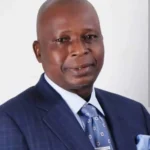The Minister of Information and Culture, Lai Mohammed, has said while past governments pampered corrupt people, President Muhammadu Buhari’s administration exposed and put them on trial.
He said beyond unprecedented infrastructure development, the administration would leave behind legacies of revamped security, social investment, self sufficiency in staples and probity, among others.
The minister said these in Abuja on Monday during the 16th edition of President Muhammadu Buhari Administration Scorecard Series (2015-2023).
He said, “Whereas the immediate past administration came up with such programmes as TSA (Treasury Single Account) and IPPIS (Integrated Payroll and Personnel Information System), they were implemented largely on paper until we came on board and ensured total implementation.
Kevin McCarthy’s lesson for Atiku
Community, lawyer bicker over N21m auction proceeds
“The EFCC, the ICPC and other anti-corruption agencies have gone beyond merely arresting and prosecuting alleged corrupt officials to institutionalising the fight against corruption through various programmes.”
He added, “Our pace-setting social investment programmes like N-Power, School Feeding, Conditional Cash Transfer and GEEP (Government Enterprise Empowerment programme) have benefitted millions of our citizens, both young and old, and this can neither be trivialised nor denied.”
Mohammed stated that fertiliser blending plants in Nigeria had increased astronomically from 10 in 2015 to 142 while the number of rice mills had increased from 10 in 2015 to 80.
“Nigeria, which was the number one export destination for rice in 2014, according to Thai authorities, now ranked as number 79.”
He also said the current administration was leaving a legacy of a revamped security sector in the face of unprecedented security challenges in the country.
The minister, who added that the administration was leaving a legacy of inclusiveness, noted that there was no state in Nigeria that had no road, bridge or housing project irrespective of party affiliation.

 Join Daily Trust WhatsApp Community For Quick Access To News and Happenings Around You.
Join Daily Trust WhatsApp Community For Quick Access To News and Happenings Around You.


